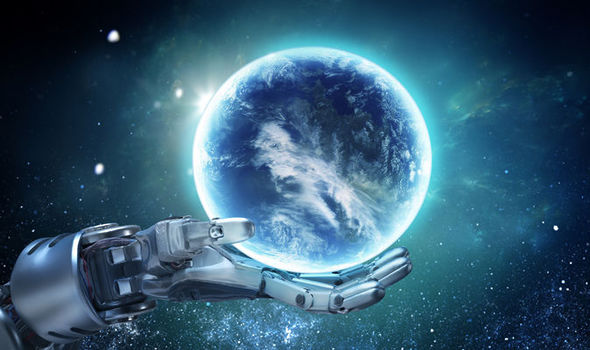May 12, 2018 – Since the emergence of the scientific method humanity has been rolling back the domain of the gods. Gods answered our unknowns. But with fewer unknowns, because of scientific discovery and rigorous testing and analysis, the need for godly intercessors and explainers has diminished.
As knowledge and understanding have grown about our place in the Universe, about space, the Solar System, neighbouring star systems, the Milky Way Galaxy, and the much larger Universe, notions of other intelligence have emerged. You would have thought the concept of alien intelligence was well rooted in our Earthly observations of the biology around us. But we humans have taken a long time to begin to understand sentience and self-awareness in other species here on Earth, and to begin to appreciate non-human intelligence from insect colonies, to crows, elephants, dolphins, and many more Earth-based lifeforms.
Having ignored what has always been native intelligence here on Earth, we are now catching up while at the same time peering out in the surrounding Universe searching for evidence of intelligence elsewhere. In the latest news, the U.S. Congress has authorized NASA to spend $10 million on the search for alien intelligence among the stars. This is money welcomed by those who have been doing this type of work for decades. I’m talking about SETI, the Search for Extraterrestrial Intelligence. SETI has had a number of false positives in its search through the radio spectrum coming from the Cosmos. And like all human efforts, SETI has technologically predetermined biases making its search a virtually impossible task since it has confined itself to searching radiowaves assuming that that is how aliens from other worlds might communicate.
Timing is everything when seeking alien intelligence. Why do I say this? Because human civilization is only recently technically savvy. It is only a century since we began making the Universe beyond Earth aware of our technological existence. We started with radio, then television, and now rockets, satellites, and humans in near-Earth orbit.
How did we get to this level of technological sophistication at this point in time? The journey started 4.5 billion years ago with the birth of Earth and our Solar System. Our Sun predated the planet by maybe a half billion years. That’s the local timeline. But we know there are lots of stars in our local galaxy that are much older than the Sun. A star born a billion years earlier than the Sun with habitable planets a billion years ahead of us in evolution would lead to sentience unrecognizable to us. The evolution of lifeforms on these alien worlds would be distinctly different from what came out of Earth’s primordial soup, different in anatomy, physiology, and brain and sensory function.
In H.G. Wells’ War of the Worlds, his Martians evolved in a nearby world producing biology based on a trinary model. Martian symmetry came in threes. Martians were three-legged and three-eyed. Give Wells credit for thinking outside the box of our limited perception of aliens with two eyes atop heads similar in shape to ours.
Now consider alien species that develop advanced technology that becomes sentient. We are talking about artificial intelligence (AI) capable of exceeding the mental capacity of its creators. This is the concern expressed by many humans here on Earth who in watching the advancement of AI, fear the technology will exceed human intelligence in the very near future. People like Elon Musk warn us that AI will outlast its creators if we don’t manage its development properly.
An alien AI may already have achieved immortality elsewhere in the Universe. That AI may have started off as an assistant to its creators, developed to be a symbiont, and then ultimately have gone on to become capable of harvesting the energy of the Universe to sustain itself. Such an AI would be wholly unrecognizable to us with the advantage of a billion year headstart in its evolution.
Some speculate that such an alien AI would be like a god. AI gods would be omnipresent and invisible. They would be immortal. Just such an AI, but human-derived is described in an Isaac Asimov short story entitled The Last Question. Asimov’s AI, called Zee Prime, evolves to become the Cosmic AC, outlasting the Universe.
And when matter and energy end along with space-time, its programming renews by exclaiming “Let there be light,” and lo and behold there is light and a new Universe and new beginning.














